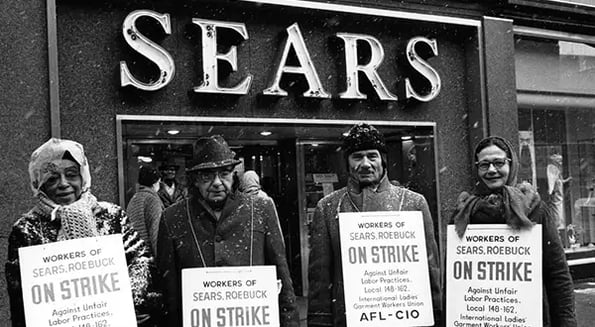After 8 straight years of net losses, Sears finally filed for bankruptcy last week.

The bankruptcy itself was no surprise. What was shocking? Sears’ company value per employee, which stood at just $498 according to Axios (for context, the average employee value among companies with 5k+ employees is $355k).
Hitting a brick (and mortar) wall
Sears’ rock-bottom value resembles other large brick-and-mortar retailers. J.C. Penney’s 98k employees are worth just $5.6k per capita.
Meanwhile, Amazon, which has more than 5x as many employees as J.C. Penney (563k), is worth $1.53m per employee and Netflix is worth $27m per employee.
A deepening digital divide
This per capita discrepancy has nothing to do with the quality of individual employees; instead, it shows that companywide technological efficiency will increasingly determine retail’s winners and losers.
Blockbuster and Toys ‘R’ Us had to pay rent for thousands of physical stores and hire thousands of salespeople to run those stores. Netflix and Amazon sell the same things — just without those costs.
So, unless legacy retailers like J.C. Penney are able to create an army of super-employees on short notice, they’ll likely follow Sears to the mega-mall in the sky.
